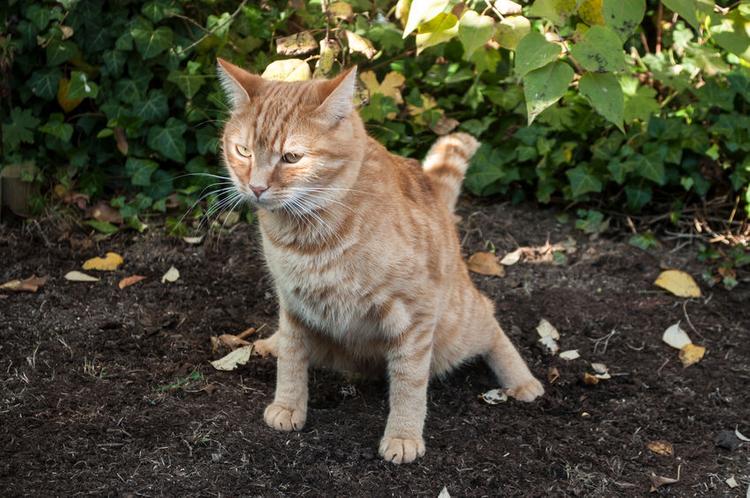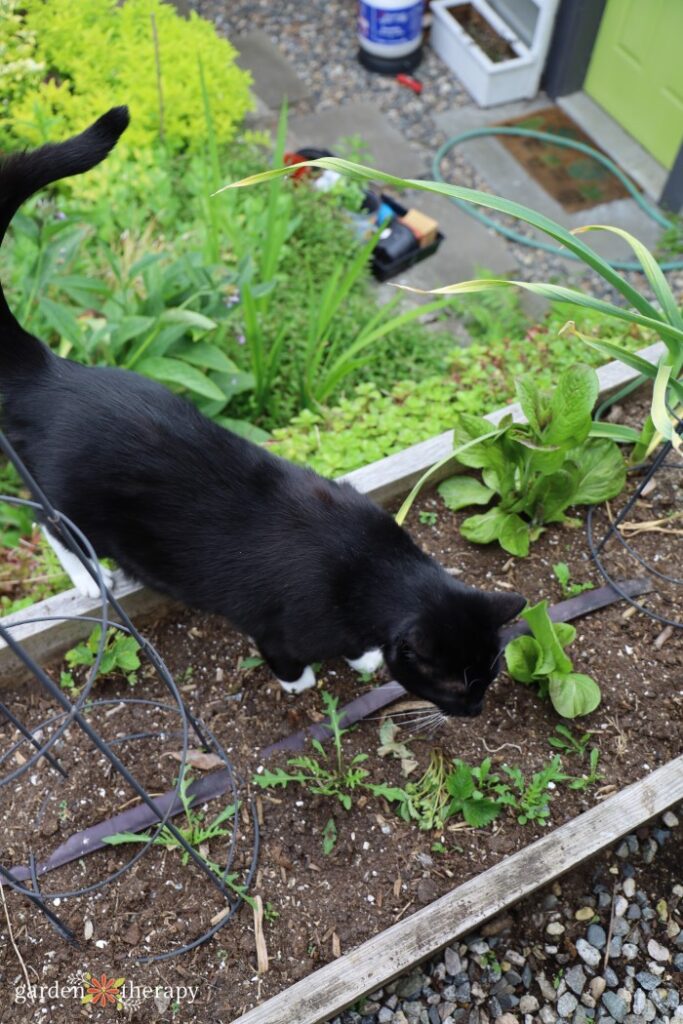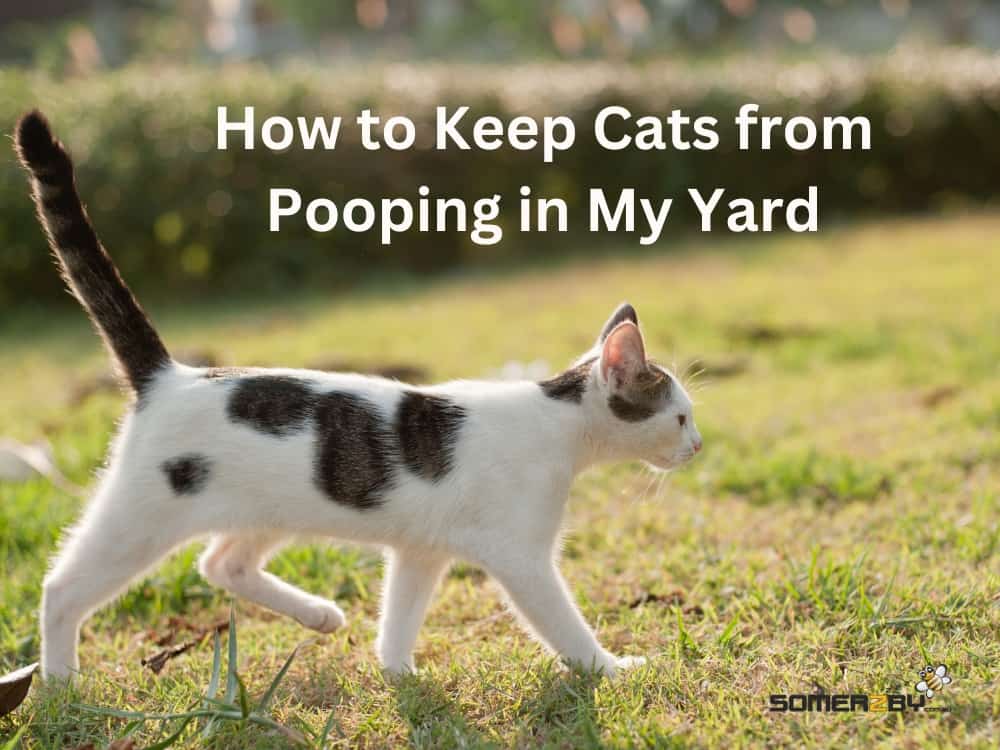How to Keep Cats from Pooping in My Yard: Top Tips

Cats can be charming pets, but they often roam freely outdoors. This can lead to a common problem: cats pooping in your yard.
This not only creates a mess but can also be frustrating for homeowners. Keeping cats out of your yard requires a mix of strategies. First, it’s important to understand why cats choose your yard. They may see it as a litter box or a safe space.
You can take simple steps to discourage this behavior. By making your yard less appealing to them, you can enjoy your outdoor space again. This guide will share effective tips to help you keep those unwanted visitors away from your garden. Let’s explore some easy solutions to reclaim your yard.

Credit: www.instructables.com
The Feline Dilemma: Unwanted Yard Visits
Cats may choose your yard for several reasons. They love to explore. A yard can feel like a safe haven. It offers shelter and plenty of space to roam. Other animals might also attract them.
Sometimes, cats look for a quiet place to relieve themselves. Your yard could be perfect. It may have soft soil or grass. This makes it easy for them.
Food sources can also draw cats in. If you feed birds, they might come for the easy meal. A warm spot in the sun can also be appealing.

Credit: vahousingcounselors.org
Assessing Your Outdoor Space
Many things can attract cats to your yard. Cats love to dig in soft soil. They enjoy areas with a lot of plants. Some plants are also great for hiding. A sunny spot can be very appealing. Cats are curious and like to explore.
Food is a big attractant. Leaving food outside can invite cats. Even bird feeders can attract them. Cats often come for the birds.
Smells matter too. Strong scents can pull cats in. Other pets’ scents can also attract them. Check for spots where cats might enter.
| Common Cat Attractants | Entry Points |
|---|---|
| Soft soil | Gaps in fences |
| Food scraps | Open gates |
| Bird feeders | Climbing trees |
| Strong scents | Low walls |
Natural Deterrents To Discourage Cats
Some plants can help repel cats. These plants have strong scents. Cats do not like these smells. Here are some plants to consider:
- Lavender – Has a sweet smell but cats dislike it.
- Rosemary – Its scent is strong and spicy.
- Citronella – Known for keeping bugs away too.
- Rue – A traditional herb that cats avoid.
DIY home remedies can also help. Mix water with vinegar. Spray this mixture around your yard. Cats usually stay away from it. You can also use citrus peels. Cats dislike the smell of citrus. Place peels around your garden.

Credit: www.somerzby.com.au
Physical Barriers And Obstacles
Fencing can keep cats out of your yard. Use tall fences. Make sure the top is hard to climb. Consider a fence that angles inward. This design makes it harder for cats to jump over.
Strategic landscaping helps too. Plant thick bushes or tall flowers. Cats may not want to walk through them. Using prickly plants can also deter cats. They will avoid places that hurt their paws.
Keep the yard clean. Remove food or trash that attracts cats. Use scents cats dislike, like citrus. Cats have strong noses. They often stay away from smells they do not like.
Scent-based Solutions
Many people use commercial repellents to keep cats away. These sprays have strong scents. Cats usually dislike these smells. Look for products that contain citrus or eucalyptus. They are often effective.
Homemade scent mixtures can work too. Mix water with vinegar and spray it in your yard. Cats don’t like the smell of vinegar. Another option is to use citrus peels. Place them around your yard. Cats avoid areas with strong citrus smells.
Lavender oil can also help. Mix it with water and spray it around. Cats dislike the scent of lavender. Try using coffee grounds too. Spread them in your garden for a strong smell.
Technological Aids And Gadgets
Motion-activated devices can help keep cats away. These gadgets sense movement. They then make loud noises or spray water. Cats dislike sudden sounds and wetness.
Ultrasonic repellers are another option. These devices emit high-frequency sounds. Humans cannot hear them, but cats can. The noise makes cats uncomfortable. They will choose to stay away.
Both types of devices are easy to use. Set them up in your yard. Adjust the settings for best results. Check them regularly to ensure they work.
Training And Behavior Modification
Training your cat can help keep them out of your yard. Use direct training techniques to show them where to go. Start by rewarding them for using the litter box. Give treats or praise when they do it right.
Creating unfavorable experiences can also help. Use strong scents like citrus or vinegar in areas they like. Cats don’t like these smells. You can also try motion-activated sprays to startle them away. This helps teach them that your yard is not a place for them.
Consistency is key. Make sure everyone in your home helps with training. The more they see and smell, the more they will learn. Stay patient and keep trying different methods.
Community And Neighborly Approaches
Talking to your neighbors is a good start. Share your concerns about the cats. Ask if they have the same problem. Work together to find solutions.
Consider organizing a community meeting. Discuss different ways to keep cats away. Share ideas that might help everyone.
Be open to suggestions. Some people may have successful tricks. Listen to their experiences. A friendly approach can make a big difference.
Creating a neighborhood plan can help, too. Agree on actions you all can take. This teamwork can lead to better results for everyone.
Legal Considerations And Ethics
Check your local laws about cats. Some places have rules. These rules help protect pets. They also protect your yard.
Know the legal limits on how to handle cats. Some laws say you can’t harm them. This is important to remember.
Be kind to animals. Use humane methods to keep them away. There are ways to train cats without hurting them. This keeps your yard clean and cats safe.
Long-term Strategies For A Cat-free Yard
Cats pooping yard: Keep your yard clean by being consistent. Use the same methods every time. This helps cats learn that your yard is not a good place for them.
Be patient. It may take time for the cats to stay away. Cats can be persistent. If one method does not work, try a different one.
Monitor the situation. Watch for any signs of cats returning. If you see them, it’s time to adjust your tactics. Changing your approach can help keep your yard cat-free.
Try using natural deterrents like citrus peels. Cats often dislike the smell. You can also use fencing or planting prickly bushes. This makes your yard less inviting for cats.
Frequently Asked Questions
How Can I Deter Cats From My Garden?
Cats pooping yard: To deter cats from your garden, consider using natural repellents such as citrus peels or coffee grounds. Additionally, planting cat-repelling herbs like lavender or rosemary can help. Installing motion-activated sprinklers may also scare them away. These methods are non-toxic and environmentally friendly.
What Scents Repel Cats Effectively?
Cats dislike strong scents like citrus, vinegar, and eucalyptus. Using these scents in your yard can deter them. You can use sprays or scatter peels around your garden. Ensure to reapply these scents regularly for maximum effectiveness, especially after rain.
Are There Plants That Keep Cats Away?
Yes, certain plants can repel cats. Rue, lavender, and rosemary are known for their cat-repelling properties. Planting these in your yard can create a natural barrier. Cats tend to avoid areas with these scents, making your garden less appealing to them.
How To Keep Stray Cats Out Of My Yard?
Cats pooping yard: To keep stray cats out, secure your trash bins and remove food sources. You can also install fencing or barriers to block access. Using motion-activated devices or noise deterrents can be effective. Consider contacting local animal control if the problem persists.
Conclusion
Cats pooping yard: Keeping cats out of your yard requires some effort. Use deterrents like citrus peels and coffee grounds. Create barriers with fences or plants. Regularly clean up any waste to discourage return visits. Remember, a clean yard is less inviting. Talk to neighbors about keeping their cats indoors.
With patience and persistence, you can enjoy a cat-free yard. These steps help maintain a peaceful outdoor space for everyone. A little action goes a long way in solving this issue. Take charge and protect your yard today.






